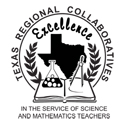The TRC hosted the Biology Round Robin PDA on September 10 and 11, 2014. The presenters and speakers at the PDA have allowed the TRC to share their presentation materials online.
Agenda
Biology Round Robin PDA Agenda (PDF)
General Sessions
Central Dogma of Life
Nurul M. Alam, Ph.D.
Associate Professor of Biology, Texas A&M University-Texarkana
This talk will cover the basic aspects of Transcription and Translation with special focus on transcriptional regulation, and the interactions of different factors in protein synthesis.
Download Materials (.zip)
Argument-Driven Inquiry as a Way Transform Laboratory Experiences
Victor Sampson, Ph.D.
Associate Professor, The University of Texas at Austin
This presentation will introduce a new approach to laboratory instruction called Argument-Driven Inquiry. This approach is based on current research on how people learn and makes laboratory experiences authentic and educative for students. It also helps students understand key scientific content, develop scientific process skills, and learn how to read, write, speak in the context of science. The presentation will include an overview of the approach and some current research about it.
Materials for this session are not available at this time, as Dr. Sampson has already presented each attendee with a copy of his book.
Session 1
Manipulative Mania: Biomolecules and Metabolic Processes
Biology TEKS 4B, 9A-B, 9D, 11A
Jennifer Jordan-Kaszuba
TRC, UT Austin
Manipulatives can be used to teach, reinforce, and review both concepts and vocabulary. Come experience manipulatives designed to help Biology students master content in an engaging manner. Access to digital copies will be made available to all participants.
Download Materials (.zip)
Give a Hoot About an Owl’s Diet
Biology TEKS 12C, 2F, 2G, 3E
Mary Ingle
Ward’s Science
Participants will engage in a lively hands-on, student-centered lesson that utilizes owl pellets to analyze food chains, food webs, and ecological pyramids. All participants will receive access to a Biology Scope and Sequence and will be eligible for door prizes from Ward’s.
Download Materials (.zip)
DNA Detectives
Biology TEKS: 6A-C, 6G
Leigh Brown
Bio-Rad Laboratories
Take your biomolecules lab to the next level in this hands-on workshop, and show your students how to use carbohydrates (agarose), proteins (enzymes), and nucleic acids (DNA) to solve a crime! Students will be able to engineer their own DIY gel boxes and learn a core biological technique for analyzing nucleic acids and proteins. We’ll also discuss the role of restriction enzymes, and how we can use these bacterial enzymes to analyze our DNA.
Download Materials (.zip)
Session 2
Biomolecules, Cell Respiration and Photosynthesis
Grade 8: 11C Organisms & Environments, Biology TEKS 4B, 9A-B, 9D, 11A
Karen Killion and Carolyn Schroeder
TAMU-College Station Regional Science Collaborative
Hands on methods of teaching biomolecules, flowcharts and foldables for cell respiration and photosynthesis will be presented.
Download Materials (.zip)
Extreme Primeval
Biology TEKS 4B, 9A-B, 9D, 11A
Sally Wall
Galveston County Regional Science Collaborative
While a multitude of hypotheses that attempt to explain the formation of molecules and polymers are available, none are without fault, and it is very difficult to prove that any are correct. This small group activity informs students of several hypotheses and encourages critical thinking as students classify, analyze and judge which provide the best explanations for the formation of simple organic molecules and the ability to carry information if/when self-replication occurs.
Download Materials (.zip)
Crazy Traits from Crazy Chromosomes
Biology TEKS 6A-C, 6G
Pat Stevenson and Cheryl Allison
Region 8 Science Collaborative
Come explore the code, DNA Code, that is, and create a creature using CPO’s Crazy Traits activity. We will translate DNA into an interesting creature and unlock the mysteries of autosomal dominant and recessive traits. Along the way, we will discover a hidden treasure of incomplete dominance and co-dominance. Come join us! You will love this unusual and unique hands-on way of presenting these concepts to students.
Download Materials (.zip)
Session 3
Biology STAAR Review Stations
Biology TEKS 4B, 9A-B, 9D, 11A
Paula Hiltibidal
Region 15 Regional Science Collaborative
Participants will explore and evaluate biology review stations to help prepare students for the biology end-of-course exam. Stations include a compilation of interactive, hands-on activities that give students the opportunity to review the biology concepts. In addition, participants will examine vertical alignment of Reporting Category, “Organisms and Environments” to the high school Biology course.
Download Materials (.zip)
The Energy Pipeline
Grade 8: 11C Organisms & Environments
Judy York
Region 12 Science Collaborative
Where does all the energy in an ecosystem come from and where does it go? Join this action filled session to experience the “energy pipeline.” Participants will practice ways to make their student’s thinking visible as they compete to BE the top predator.
Download Materials (.zip)
Using and Creating Models of Energy Flow through Ecosystems
Grade 8: 11C Organisms & Environments, Biology TEKS 12C, 12F
Pam Larson, Laura Chervenak, and Joel Blasingame
Explore Learning
Identify common misconceptions about energy transfer through ecosystems and learn techniques for dispelling them in your students. Online simulations will be used to explore the transfer of energy through ecosystems, gathering data to support a conceptual model of the system. We explore energy flow beginning with a study of photosynthesis, then examine the digestion of nutrients, and end with an investigation of a real-life food chain. Bring a laptop or iPad to fully participate!
Download Materials (.zip)
Session 4
Biomolecule Associations
Biology TEKS 4B, 9A-B, 9D, 11A
Christina Crawford
Rice University Regional Science Collaborative
In this session, participants will take part in two active learning strategies that are useful as an Engage or as an Evaluation for the biomolecule unit. Participants will address Biomolecules as they create associations and definitions for proteins, lipids, nucleic acids, and carbohydrates without being aware of the vocabulary terms.
Download Materials (.zip)
UPS and DOWNS of Homeostasis
Biology TEKS 4B, 9A-B, 9D, 11A
Cindy Dyes
Region 9 Regional Science Collaborative
Organisms must maintain homeostasis to keep their internal environment balanced within normal limits. Increase and decrease responses occur at various trigger points in a system. Participants will explore negative feedback loops through analogies and hands on simulations to better understand homeostasis and negative feedback. Based on the Science Take-Out Lesson.
Download Materials (.zip)
Dragon Genetics
Biology TEKS (6A-C, 6)
Jennifer Jordan-Kaszuba
TRC, UT Austin
Experience meiosis and genetics in an integrated activity designed to reinforce how sexual reproduction leads to genetic diversity through crossing over while reviewing genetic crosses and gamete production through the lens of dragons. Based on an NSTA article from 1997 this method makes genetics come alive and engages students.
Download Materials (.zip)






